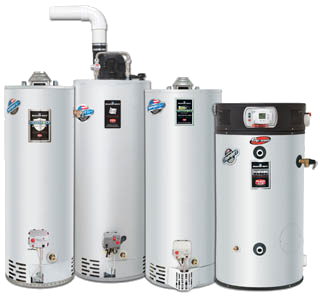What Type of Water Heater Should I Buy?
 Posted by admin on October 1, 2019
Posted by admin on October 1, 2019
With most of the appliances in our home, when they work, we give them very little thought. However, when things go wrong, we suddenly realize just how much we rely on them day-to-day. When people decide to buy a new vehicle or mobile phone, they will spend many hours online conducting research, comparing models, and evaluating all of their options. Yet when it comes to a new water heater, many people focus exclusively on price and perhaps a basic point like volume or energy consumption. Water heaters are so far outside the experience of the average Portland homeowner that rather than try to fit extensive research into a busy schedule, we simply make what we hope is a good choice.
Instead of just crossing your fingers, we hope that you would give the water heater professionals at Uhvac a call. We are determined to ensure that our customers always get the best water heater for their situation, which is why we always like to spend a little time explaining the benefits and drawbacks of each type.
The Different Types Of Water Heater
With the cost of energy – not to mention concerns over global energy consumption continuing to rise, it is important to do everything possible to reduce the amount of energy your home uses on an annual basis. People are often shocked when we tell them that almost 20 percent of their annual energy expenditure is from heating up your household water. This is the primary reason why choosing the correct water heater for your usage pattern is so important.
Storage vs. Tankless Water Heaters
When most of us in the US think of a water heater, we think of a storage water heater. This type of water heater has long been the most popular type within residential properties, and the initial cost of a storage water heater is often significantly cheaper than other options on the market today. However, the negative aspect of this type of heaters is that they are considerably more expensive to run. They need to consume energy even when you are not using the hot water tap simply to keep the water in the tank at temperature. While insulation in water heater tanks has improved significantly in recent years, the issue of heat loss can never be fully resolved.
There is, however, an alternative. In recent times, tankless water heaters have become the water heater of choice for many people, and for good reasons. Rather than running out of hot water as can happen in a big family with a storage heater, a tankless water heater delivers virtually unlimited and instant hot water by heating up the water only as it is demanded from the tap. This generates lower energy bills. Tankless units can fit in a much smaller space than a storage water heater.
On the negative side, the initial cost of a tankless water heater is significantly more. A whole house electric model can run you about $1000, with a gas version even more expensive at $3000. Although this type of heater can provide unlimited hot water, if everyone in the household wants a shower at the same time, it may struggle to keep up. That said, if efficiency is your priority, then an electric tankless model is your best option.
Electric vs. Gas Water Heaters
Another choice facing consumers is whether to choose an electric or a gas powered heater. While many homeowners are somewhat limited by what they are already hooked up for, some may have the option to choose. Others simply may want to make the choice to spend extra and switch based on other priorities.
Electric heaters are suitable for all properties, whereas gas heaters are only an option if you have a natural gas hookup available. So making the switch one way is clearly quite a bit cheaper than going the reverse direction.
Gas powered heaters tend to have a longer life-span but are generally more expensive to purchase and install than their electric counterparts. Natural gas units also tend to be cheaper to operate, depending on the cost you are paying for electricity. Of course, if you have the access to cheap hydro power that we are blessed with in the Portland area, or better yet have a rooftop solar system, this may not be the case.
There are several more water heater options we could talk about: tank linings, first hour ratings, valve materials, warranties…the list goes on. But those are topics for another blog, another day. For now, if you have any questions about water heaters in the Portland area, please don’t hesitate to give us a call or an email. We’d be happy to talk about these topics and any other questions you have…preferably related to water heaters or other HVAC queries. Fishing questions, for instance, we may have to refer elsewhere.
You must be logged in to post a comment.

